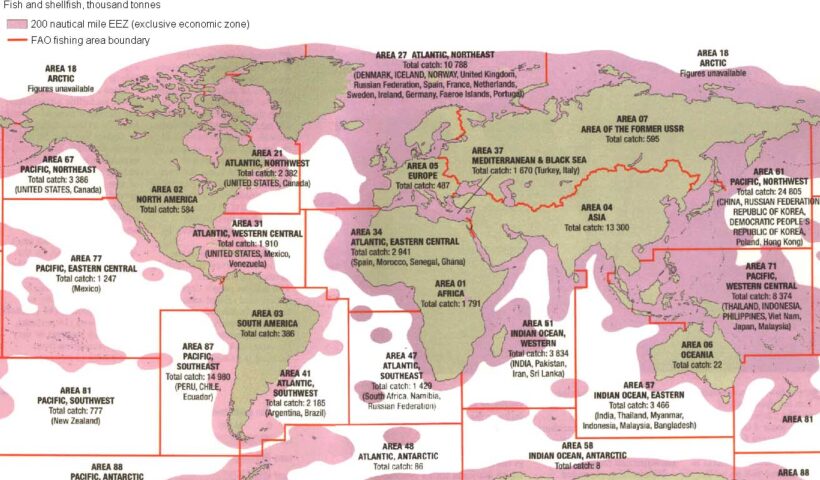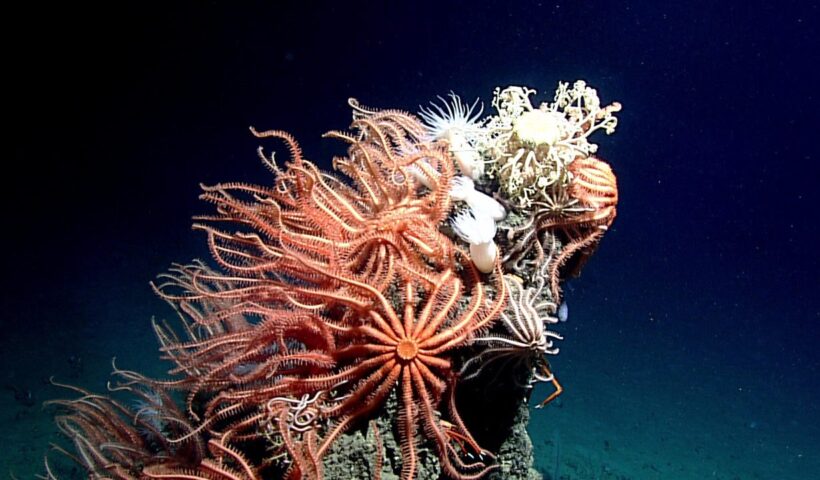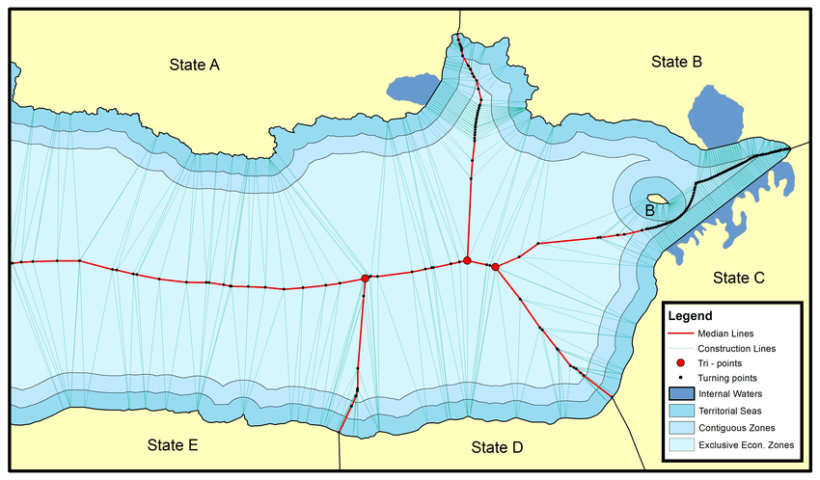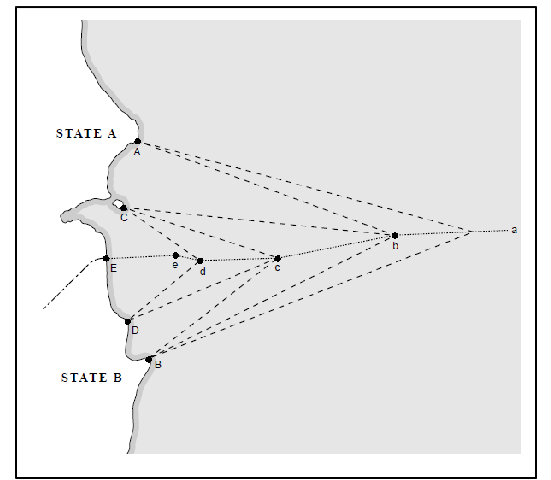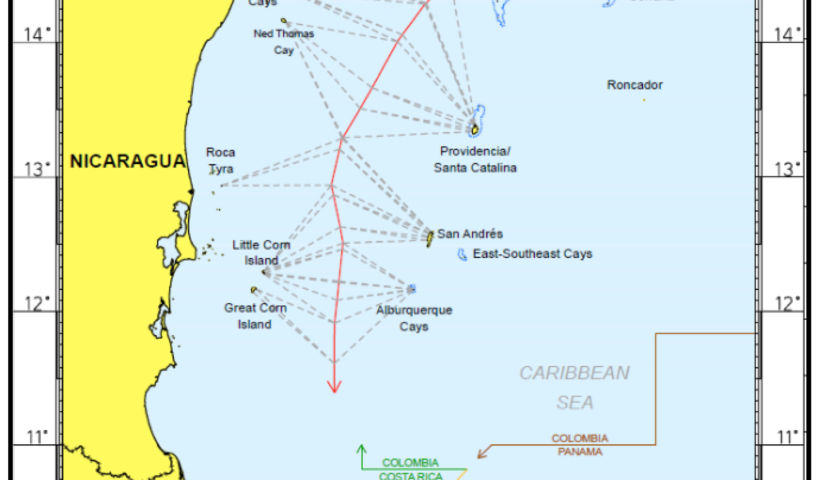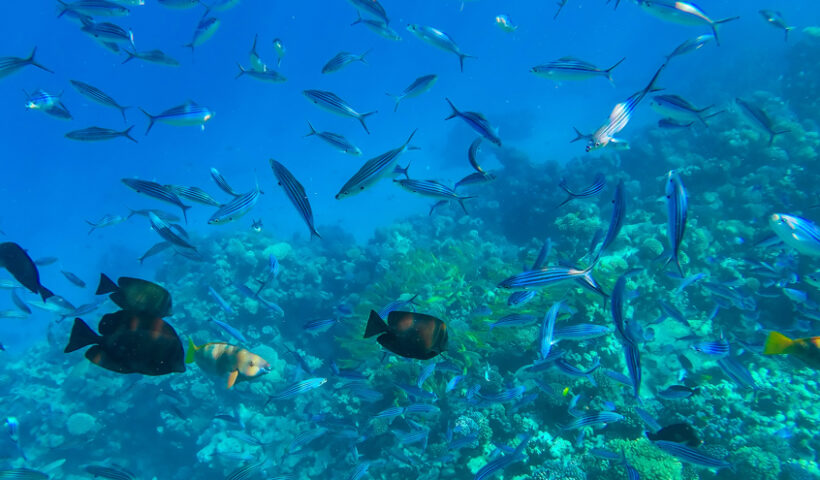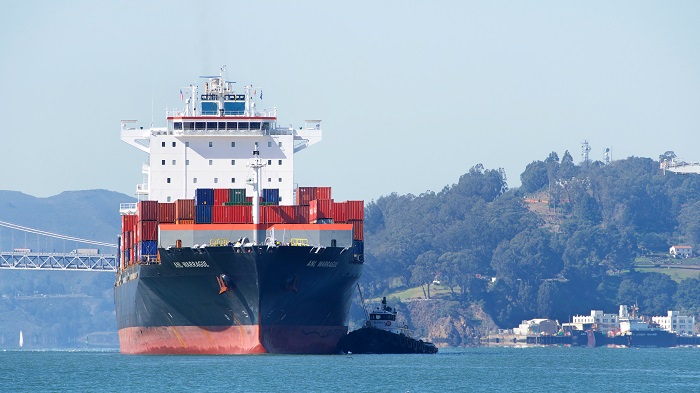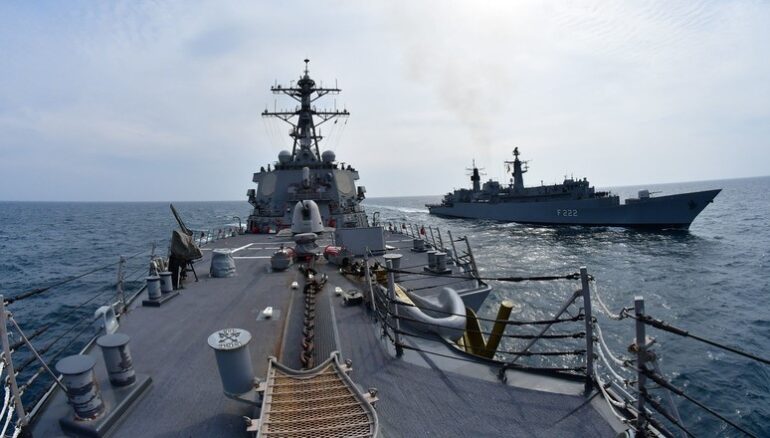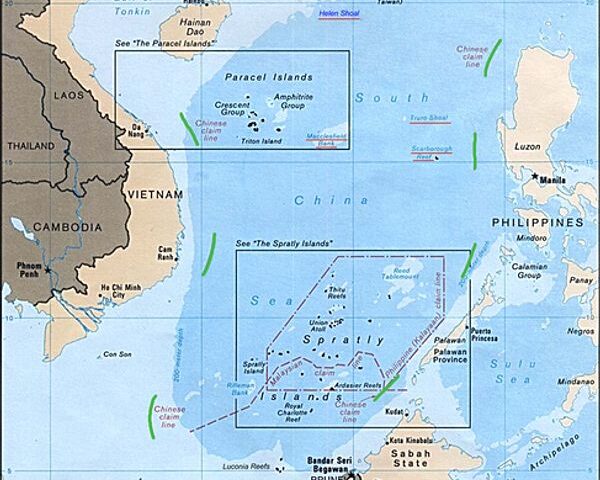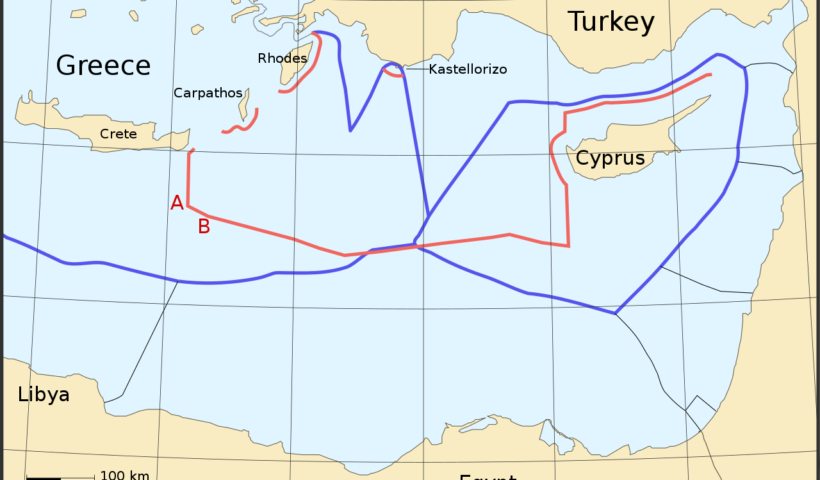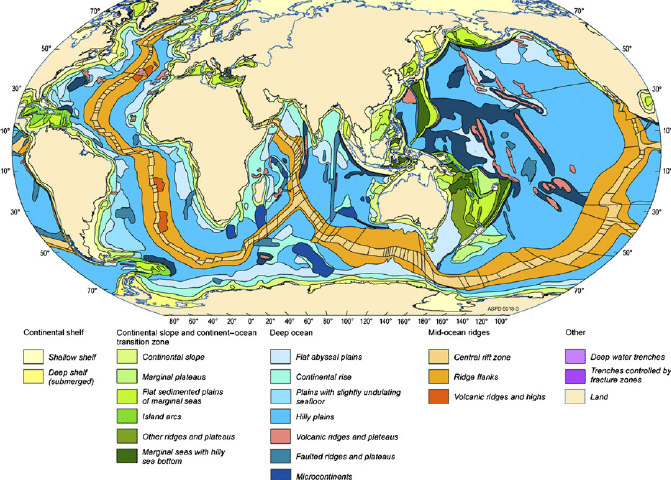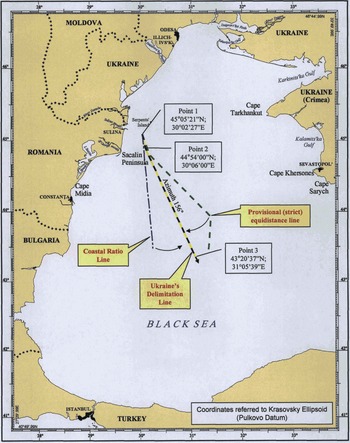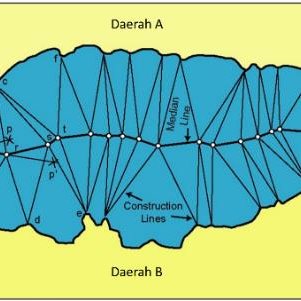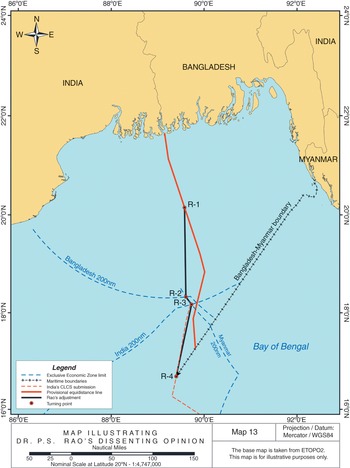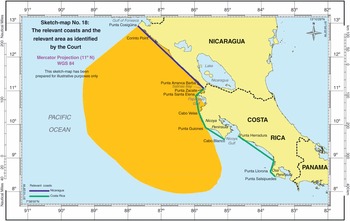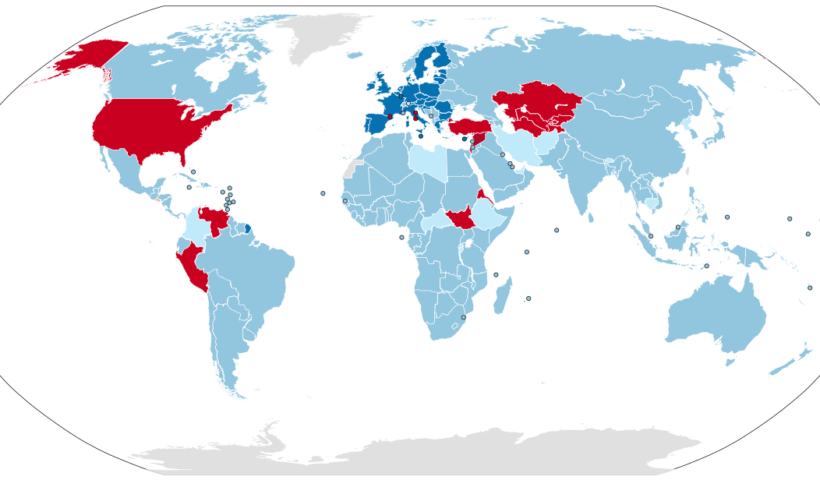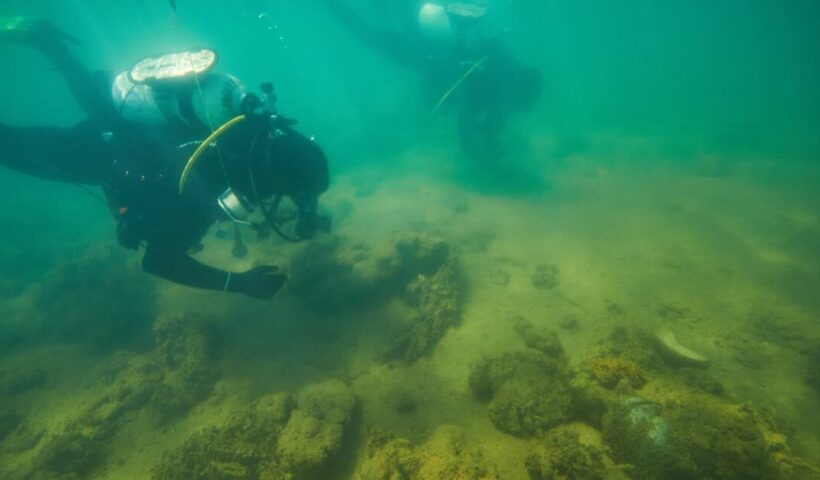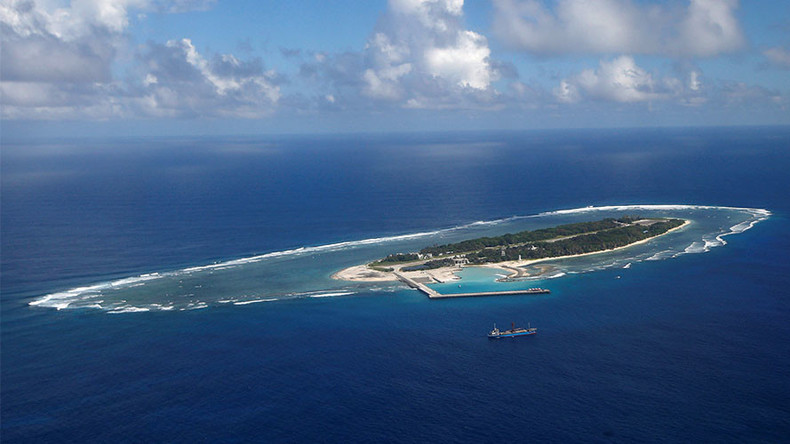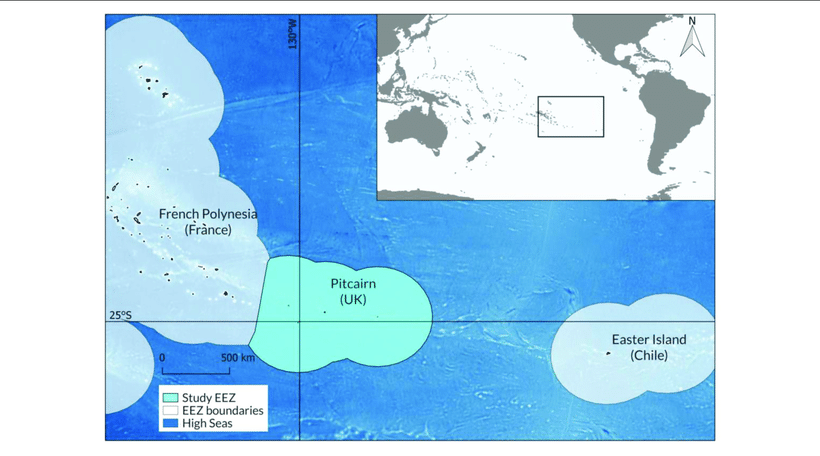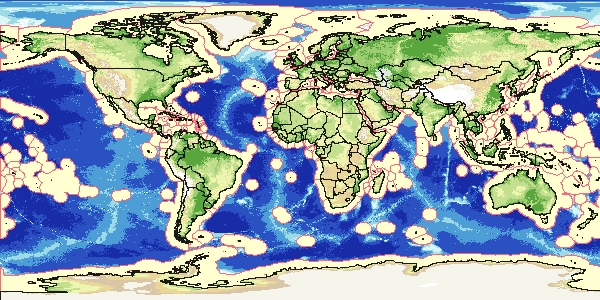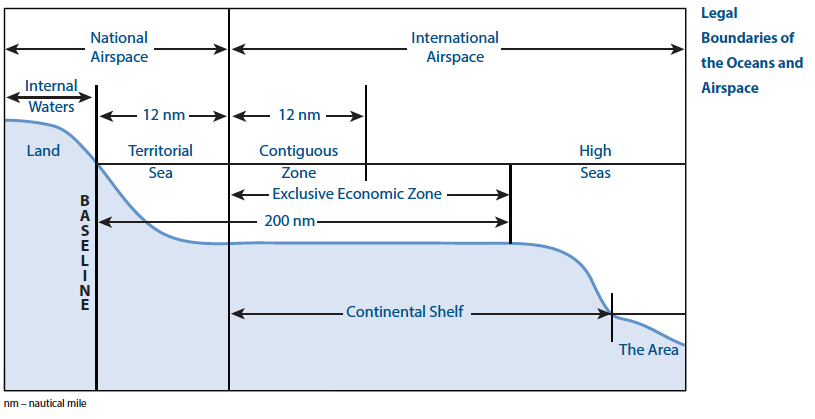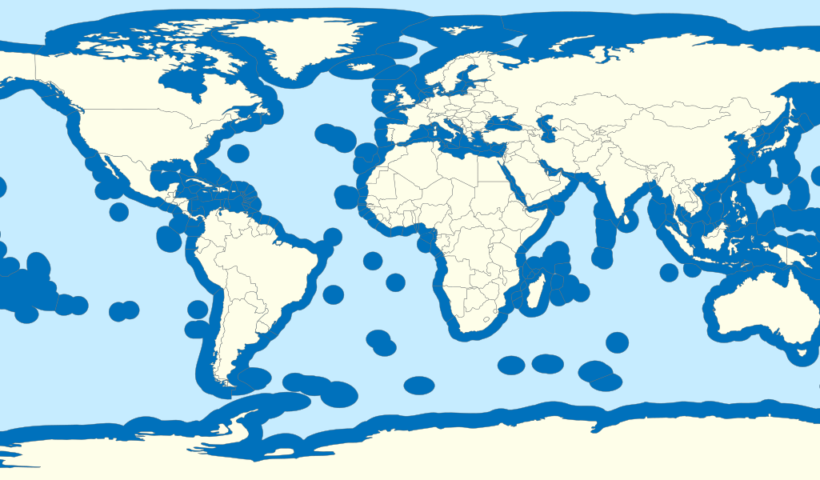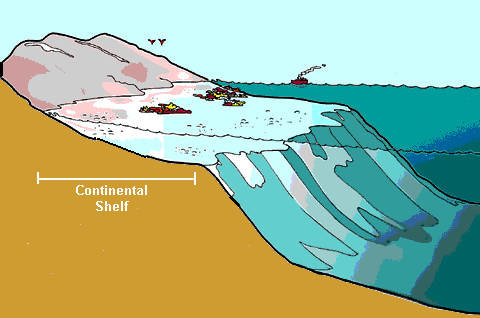where no EEZ claim has been made, several states instead claim an exclusive fishery zone. A significant proportion of these states border the Mediterranean Sea which has witnessed a dearth of EEZ claims.
The Mediterranean littoral states are not opposed to the EEZ concept in principle, but have been dissuaded from making EEZ claims because of ‘a twofold economico-geographic reason’. The geographical part of this reason relates to the fact that the physical dimensions of the Mediterranean preclude any coastal state from claiming an EEZ out to 200 nm from its baselines. The economic dimension refers to the the relatively unproductive nature of the Mediterranean from a fisheries perspective. Fishery zones have also been claimed by several states on behalf of their dependent territories.
Category: Exclusive Economic Zone(EEZ) legal aspects
what is the meaning of “Equidistance line; equidistant line; median line” in law of the sea, LOSC and customary international law
In UNCLOS analysis, an “equidistance line,” synonymous with “equidistant line” or “median line,” means a line every point of which is equally distant from the nearest points on the baselines of two States. what is the meaning of “Equidistance line; equidistant line; median line” in law of the sea, LOSC and customary international law, equidistance line, equidistant line, How are maritime boundaries defined?, median line, What is a single maritime boundary?, What is median line principle?, What is unclos and its purpose?
View More what is the meaning of “Equidistance line; equidistant line; median line” in law of the sea, LOSC and customary international lawwhat is the meaning of “Common heritage of mankind or common heritage of humankind” in law of the sea, LOSC and customary international law
what is the meaning of “Common heritage of mankind or common heritage of humankind” in law of the sea, LOSC and customary international law, common heritage of humankind, Common Heritage of Mankind, what is the meaning of “Common heritage of mankind?
View More what is the meaning of “Common heritage of mankind or common heritage of humankind” in law of the sea, LOSC and customary international lawwhat is the meaning of “Coastal State” in law of the sea, LOSC and customary international law
“Coastal State” is a State from whose coast or baselines the breadth of the territorial sea is measured, those baselines being determined in accordance with UNCLOS Articles 5–7, 9–10 and 47. what is the meaning of “Coastal State” in law of the sea, LOSC and customary international law, coastal State, coastal State obligations with respect to innocent passage, land-locked State, What is a coastal state under Unclos?, What is coastal state control?, What is the coastal state?, what is the meaning of “Coastal State” in law of the sea, Where is the coastal state?
View More what is the meaning of “Coastal State” in law of the sea, LOSC and customary international lawwhat is the meaning of “Adjacent coasts” in law of the sea, LOSC and customary international law
As used in UNCLOS Articles 15, 74(1) and 83, “adjacent coasts” means coasts lying on either side of the land boundary between two adjoining States. States may have adjacent coasts under UNCLOS even if they do not share a common land boundary. what is the meaning of “Adjacent coasts” in law of the sea, LOSC and customary international law, adjacent coasts, jus cogens norms, UNCLOS, what is the meaning of “Adjacent coasts” in law of the sea
View More what is the meaning of “Adjacent coasts” in law of the sea, LOSC and customary international lawLegal Nature of Maritime Delimitation in law of the sea and customary international law
Maritime delimitation may be defined as the process of establishing lines separating the spatial ambit of coastal State jurisdiction over maritime space where the legal title overlaps with that of another State. This definition calls for five comments:… Legal Nature of Maritime Delimitation in law of the sea and customary international law, a just and equitable share, continental shelf, délimitation constitutive, délimitation déclarative, EEZ, geographical co-ordinates, Gulf of Maine case, internal waters, International Sea-Bed Authority, maritime delimitation, North Sea Continental Shelf cases, provisional delimitation line, territorial sea, What are the stages of maritime boundary?, What is a single maritime boundary?, What is delimited boundary?, What is maritime space?, What is median line principle?, What is the difference between demarcation and delimitation?, Which law delimits world seas?
View More Legal Nature of Maritime Delimitation in law of the sea and customary international lawJudicial Creativity in the Law of Maritime Delimitation
Judicial Creativity in the Law of Maritime Delimitation, Anglo-French Continental Shelf Arbitration, Gulf of Maine cases, maritime delimitation, opinio juris, What are the stages of maritime boundary?, What is a single maritime boundary?, What is delimited boundary?, What is maritime space?, What is median line principle?, What is the difference between demarcation and delimitation?, Which law delimits world seas?
View More Judicial Creativity in the Law of Maritime DelimitationEnvironmental Factors as a RELEVANT CIRCUMSTANCES in delimitation process in law of the sea and customary international law
While protection of the marine environment is a matter of important concern, the existing case law seems to pay little attention to environmental concern in the context of maritime delimitations. In the Gulf of Maine case, the United States relied on environmental factors to justify an equitable maritime boundary. However, the Chamber of the ICJ discarded the ecological criterion primarily because such a criterion was inconsistent with the ‘neutral criteria’ for drawing a single maritime boundary. Usually environmental considerations have played little, if any, role in agreements concerning maritime delimitations.. Environmental Factors as a RELEVANT CIRCUMSTANCES in delimitation process in law of the sea and customary international law, delimitation process, Environmental Factors, equitable maritime boundary, Gulf of Maine case, marine environment, maritime boundary, relevant circumstances
View More Environmental Factors as a RELEVANT CIRCUMSTANCES in delimitation process in law of the sea and customary international lawNavigational Factors as a RELEVANT CIRCUMSTANCES in delimitation process in law of the sea and customary international law
Navigational Factors as a RELEVANT CIRCUMSTANCES in delimitation process in law of the sea and customary international law, delimitation process, Eritrea/Yemen Arbitration, Guyana/Suriname case, LOSC, Navigational Factors, navigational interests, relevant circumstances, territorial seas
View More Navigational Factors as a RELEVANT CIRCUMSTANCES in delimitation process in law of the sea and customary international lawSecurity Interests as a RELEVANT CIRCUMSTANCES in delimitation process in law of the sea and customary international law
Security Interests as a RELEVANT CIRCUMSTANCES in delimitation process in law of the sea and customary international law, Black Sea cases, delimitation process, Greenland/Jan Mayen case, Libya/Malta case, relevant circumstances, security factors, Security Interests
View More Security Interests as a RELEVANT CIRCUMSTANCES in delimitation process in law of the sea and customary international lawHistoric Title and Historic Rights as a RELEVANT CIRCUMSTANCES in delimitation process in law of the sea and customary international law
Historic Title and Historic Rights as a RELEVANT CIRCUMSTANCES in delimitation process in law of the sea and customary international law, continental shelf delimitation, delimitation process, EEZ, EEZ delimitation, historic rights, Historic Title, LOSC, maritime areas, maritime delimitation, relevant circumstances, South China Sea Arbitration
View More Historic Title and Historic Rights as a RELEVANT CIRCUMSTANCES in delimitation process in law of the sea and customary international lawConduct of the Parties as a RELEVANT CIRCUMSTANCES in delimitation process in law of the sea and customary international law
Conduct of the Parties as a RELEVANT CIRCUMSTANCES in delimitation process in law of the sea and customary international law, Conduct of the Parties, delimitation process, maritime delimitation, Tunisia/ Libya judgment
View More Conduct of the Parties as a RELEVANT CIRCUMSTANCES in delimitation process in law of the sea and customary international lawEconomic Factors as a RELEVANT CIRCUMSTANCES in delimitation process in law of the sea and customary international law
Economic Factors as a RELEVANT CIRCUMSTANCES in delimitation process in law of the sea and customary international law, Cameroon/Nigeria case, common deposit clause, continental shelf, Economic Factors, Eritrea/Yemen Arbitration, Greenland/Jan Mayen case, Gulf of Maine judgment, maritime delimitation, mineral deposit clause, natural resources
View More Economic Factors as a RELEVANT CIRCUMSTANCES in delimitation process in law of the sea and customary international lawPresence of Third States as a RELEVANT CIRCUMSTANCES in delimitation process in law of the sea and customary international law
Presence of Third States as a RELEVANT CIRCUMSTANCES in delimitation process in law of the sea and customary international law, Nicaragua/Colombia case, Presence of Third States, principal relevant circumstances in the law of maritime delimitation
View More Presence of Third States as a RELEVANT CIRCUMSTANCES in delimitation process in law of the sea and customary international lawGeological and Geomorphological Factors as a RELEVANT CIRCUMSTANCES in delimitation process in law of the sea and customary international law
Geological and Geomorphological Factors as a RELEVANT CIRCUMSTANCES in delimitation process in law of the sea and customary international law, continental shelf, delimitation process, Geological, Geomorphological, relevant circumstances
View More Geological and Geomorphological Factors as a RELEVANT CIRCUMSTANCES in delimitation process in law of the sea and customary international lawPresence of Islands as a RELEVANT CIRCUMSTANCES in delimitation process in law of the sea and customary international law
Presence of Islands as a RELEVANT CIRCUMSTANCES in delimitation process in law of the sea and customary international law, 12-nautical-mile, Black Sea case, continental shelf, delimitation process, geographic realities, ICJ jurisprudence, ITLOS, maritime boundary, maritime delimitation, Nicaragua/ Colombia case, Nicaragua/Honduras case, Presence of Islands, Qatar/Bahrain case, relevant circumstances
View More Presence of Islands as a RELEVANT CIRCUMSTANCES in delimitation process in law of the sea and customary international lawBaselines or basepoints as a RELEVANT CIRCUMSTANCES in delimitation process in law of the sea and customary international law
Baselines or basepoints as a RELEVANT CIRCUMSTANCES in delimitation process in law of the sea and customary international law, Baltic, baselines, basepoint, basepoints, delimitation process, equidistance method, Eritrea/Yemen case, Libya/Malta case, LOSC, Maritime Boundary Agreement between the United States and Cuba, maritime delimitations, relevant circumstances, straight-baselines system
View More Baselines or basepoints as a RELEVANT CIRCUMSTANCES in delimitation process in law of the sea and customary international lawProportionality as a RELEVANT CIRCUMSTANCES in delimitation process in law of the sea and customary international law
Proportionality as a RELEVANT CIRCUMSTANCES in delimitation process in law of the sea and customary international law, adjacent coasts, Anglo-French Continental Shelf case, delimitation process, Equitable Principles, existence of particular coastal configurations, ITLOS, maritime delimitation, North Sea Continental Shelf cases, Proportionality, quasi-equal length of the relevant coasts, relevant circumstances
View More Proportionality as a RELEVANT CIRCUMSTANCES in delimitation process in law of the sea and customary international lawConfiguration of Coasts as a RELEVANT CIRCUMSTANCES in delimitation process in law of the sea and customary international law
Configuration of Coasts as a RELEVANT CIRCUMSTANCES in delimitation process in law of the sea and customary international law, Bangladesh/India Arbitration, Bangladesh/Myanmar case, Configuration of Coasts, delimitation process, equidistance line, equidistance method, geographical factors, Guinea/ Guinea-Bissau case, ITLOS, Libya/Malta judgment, line grosso modo, macrogeography, manifestly concave, maritime delimitation, North Sea Continental Shelf cases, opposite and adjacent coasts, provisional equidistance line, relevant circumstances
View More Configuration of Coasts as a RELEVANT CIRCUMSTANCES in delimitation process in law of the sea and customary international lawTREATY LAW CONCERNING MARITIME DELIMITATION
TREATY LAW CONCERNING MARITIME DELIMITATION, 1958 Convention on the Continental Shelf, 1977 Anglo-French Continental Shelf case, continental shelf, Delimitation of the contiguous zone, delimitation of the territorial seas, determining the applicable law, EEZ, equidistance (median line), Equitable Principles, equitable solution, inequitable results, LOSC, method of delimitation, special circumstances, TSC, What are the stages of maritime boundary?, What is a single maritime boundary?, What is delimited boundary?, What is maritime space?, What is median line principle?, What is the difference between demarcation and delimitation?, Which law delimits world seas?
View More TREATY LAW CONCERNING MARITIME DELIMITATIONProtection of Archaeological and Historical Objects Found Within the Continental Shelf in the law of the sea and customary international law
It has been said that ‘the greatest museum of human civilization lies on the seabed’. Owing to the development of underwater archaeology as a scientific discipline, the protection of underwater cultural heritage has begun to emerge as a crucial issue in international law. Thus this section addresses two key instruments on this subject: the LOSC and the Convention on the Protection of Underwater Cultural Heritage adopted by UNESCO on 2 November 2001 (hereinafter the UNESCO Convention). . Protection of Archaeological and Historical Objects Found Within the Continental Shelf in the law of the sea and customary international law, Archaeological objects, continental shelf, Convention on the Protection of Underwater Cultural Heritage, EEZ, enclosed sea, Historical Objects, LOSC, semi-enclosed sea, underwater cultural heritage
View More Protection of Archaeological and Historical Objects Found Within the Continental Shelf in the law of the sea and customary international lawHistoric Rights of countries on the EEZ, based on law of the sea and customary international law
Historic Rights of countries on the EEZ, based on law of the sea and customary international law, EEZ, exclusive economic zone, High seas, historic rights, LOSC, south china sea
View More Historic Rights of countries on the EEZ, based on law of the sea and customary international lawResidual Rights of countries on the EEZ based on law of the sea and customary international law
Residual Rights of countries on the EEZ based on law of the sea and customary international law, EEZ, exclusive economic zone, LOSC, Residual Rights
View More Residual Rights of countries on the EEZ based on law of the sea and customary international lawFreedoms of Third States activity on the EEZ, based on the law of the sea and customary international law
Freedoms of Third States activity on the EEZ, based on the law of the sea and customary international law, coastal State jurisdiction in the EEZ, freedom of laying submarine cables, LOSC, Third States activity on the EEZ
View More Freedoms of Third States activity on the EEZ, based on the law of the sea and customary international lawJurisdiction of Coastal States Over the EEZ, based on law of the sea, customary international law and LOSC
Jurisdiction of Coastal States Over the EEZ, based on law of the sea, customary international law and LOSC, artificial islands, EEZ, exclusive economic zone, IMO, ITLOS, LOSC
View More Jurisdiction of Coastal States Over the EEZ, based on law of the sea, customary international law and LOSCLegal Status of the EEZ at LOSC, law of the sea and customary international law
In short, unlike territorial sovereignty, the sovereign rights of the coastal State over the EEZ lack comprehensiveness of material scope. With respect to matters accepted by international law, however, the coastal State can exercise both legislative and enforcement jurisdiction over all people within the EEZ in an exclusive manner. The essential point is that the rights of the coastal State over the EEZ are spatial in the sense that they can be exercised solely within the particular space in question regardless of the nationality of persons or vessels. Thus the coastal State jurisdiction over the EEZ can be regarded as a spatial jurisdiction. Due to the lack of comprehensiveness of material scope, this jurisdiction should be called a limited spatial jurisdiction.. Legal Status of the EEZ at LOSC, law of the sea and customary international law, coastal State, EEZ, ITLOS, Legal Status of the EEZ, limitation ratione materiae, LOSC, ratione materiae, ratione personae, Sovereign Rights Over the EEZ
View More Legal Status of the EEZ at LOSC, law of the sea and customary international lawwhat is the meaning of EXCLUSIVE ECONOMIC ZONE (treaties and customary international law)
The EEZ is an area beyond and adjacent to the territorial sea, not extending beyond 200 nautical miles from the baseline of the territorial sea. The origin of the concept of the EEZ may go back to the practice of the Latin American States after World War II. Originally the figure of 200 nautical miles appeared in 1947, when Chile (23 June 1947) and Peru (1 August 1947) claimed such an extent for the exercise of full sovereignty. The figure of 200 nautical miles relied on scientific facts: it would enable the Andean States to reach the Peruvian and the Humboldt Currents, which were particularly rich in living species.
.. what is the meaning of EXCLUSIVE ECONOMIC ZONE (treaties and customary international law), customary law, Declaration of Santo Domingo, EEZ, exclusive economic zone, maritime zone, Montevideo Declaration, patrimonial sea, sovereignty, UNCLOS I, UNCLOS II, UNCLOS III
what is Principle of the Common Heritage of Mankind in the law of the sea?
This principle is distinct from the traditional principles in two respects.
First, while the principles of sovereignty and freedom aim to safeguard the interests of individual States, the principle of the common heritage of mankind seeks to promote the common interest of mankind as a whole. It may be argued that the term ‘mankind’ is a transspatial and transtemporal concept. It is transspatial because ‘mankind’ includes all people on the planet. It is transtemporal because ‘mankind’ includes both present and future generations. It would seem to follow that the common interest of mankind means the interest of all people in present and future generations.
Second, the principle of the common heritage of mankind focuses on ‘mankind’ as a novel actor in the law of the sea. ‘Mankind’ is not a merely abstract concept. As we shall see in Chapter 5, under the LOSC ‘mankind’ has an operational organ, i.e. the International Seabed Authority, acting on behalf of mankind as a whole. To this extent, it can reasonably be argued that mankind is emerging as a new actor in the law of the sea.. what is Principle of the Common Heritage of Mankind in the law of the sea?, Common Heritage, Common Heritage of Mankind, common interest, LOSC
Equitable Principles & the Delimitation of the Continental Shelf
Equitable Principles & the Delimitation of the Continental Shelf, Delimitation of the Continental Shelf, delimitation of the maritime boundary, Equitable Principles, International Court of the Justice, What are the characteristics of the continental shelf?, What does continental slope mean?, What extended continental shelf?, What is continental shelf limit?, What is the importance of continental shelf?, What is the largest continental shelf?, Where is the continental shelf?
View More Equitable Principles & the Delimitation of the Continental Shelf
